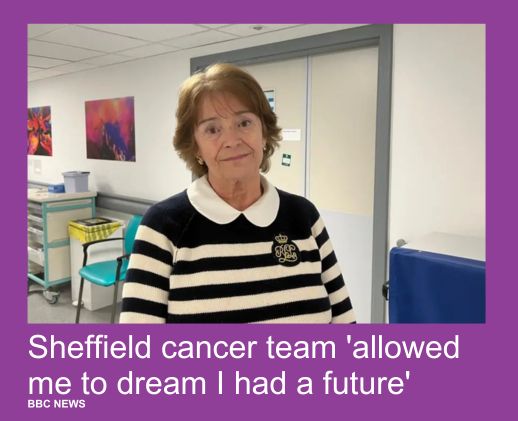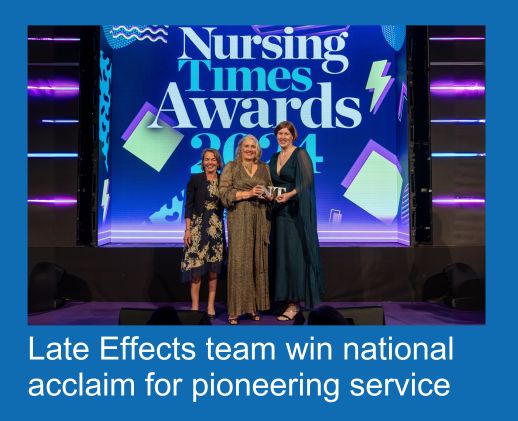Late effects
Although your cancer treatment has finished, you may still be coping with some side effects.
Side effects usually go away after treatment finishes. But some take weeks or months to improve. Sometimes, certain side effects may become permanent. Others may also develop months or years after treatment. These are called late effects of treatment.
Some people may have ongoing treatment, such as hormonal therapy or other types of anti-cancer drugs. In this situation, you may still be dealing with some ongoing side effects.
Always tell your GP, cancer doctor or nurse about side effects or any symptoms you have. There is usually something they can do to improve them. They can talk to you about ways to manage your side effects.
Late effects of cancer treatment
The Sheffield Late Effects Service helps patients living with and beyond cancer deal with a range of physical and emotional effects of treatment, including, infertility, heart problems and post-traumatic stress difficulties.
Not everybody develops late effects. It depends on the disease you had, and the type and amount of treatment you received. We use this information about your disease and its treatment to plan your care.
Common medical (physical) late effects include problems with your:
- Skin
- Heart
- Lungs
- Kidneys
- Other organs
Psychological concerns are also common. Your experience of cancer/cancer treatment may have had an impact on both you and your family, carers or friends. The staff at the Late Effects Clinic have experience of talking to lots of people with psychological concerns after treatment which helps them understand the issues affecting you. We will be able to offer you advice and help if you have any concerns related to your previous cancer and its treatment. There is also the option of being referred for specific psychological help if needed.
What happens if I need ongoing cancer aftercare?
A multidisciplinary team of doctors, nurses and other health professionals with expertise in the late effects of cancer treatment will meet to share information and to discuss and manage your care. Your medical history, including the cancer treatment you received and any current medical or psychological concerns you may have, will be discussed alongside the results of any diagnostic tests so that your relevant circumstances can be discussed and a plan made to ensure your late effects follow-up care meets your increased needs following cancer treatment.
The team is responsible for:
- Deciding if any further tests are necessary
- Discussing your follow-up care options
- Making appropriate referrals to other specialist services
- Ensuring your physical, mental and social needs are all considered (sometimes referred to as holistic needs)
- Discussing who is best placed to take a lead on your follow-up care.
Nerve damage from treatment causing significant pain is best assessed in a specialist pain service.
Where are the clinics held?
Clinics are held at either Weston Park Cancer Centre or at the Royal Hallamshire Hospital. Your appointment letter will specify which clinic to attend and how to find us.
What if I am worried about my health?
If you have any persistent symptoms, or an urgent health concern, you should seek urgent medical attention via your GP or out of hours service. You can also contact us to make an earlier appointment. We can provide you with details of who to contact and their contact details and these are given on your clinic letter. We will also advise you on what to look out for and how to recognise when to seek further professional advice.

